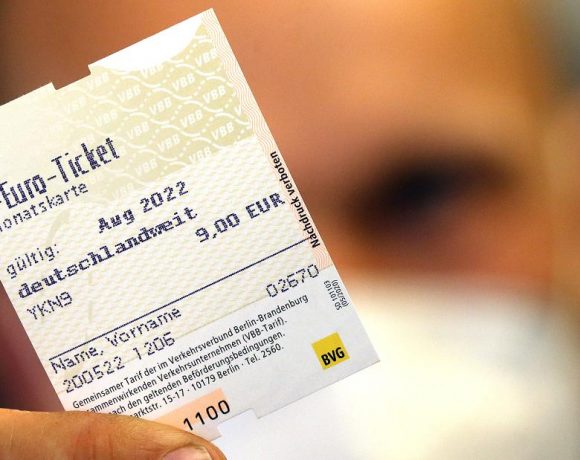
In an effort to combat rising living costs, Germans will be able to travel the country for just €9 per month for the next three months.
The government’s initiative covers all local and regional transportation via trains, buses, and metro, but not intercity trains. The low-cost tickets are also intended to encourage people to abandon their automobiles.
However, the fuel tax has been reduced by around 30 cents per litre, bringing petrol prices below €2. For the next three months, the tax has been reduced to the EU minimum, which means diesel prices will drop by around 14 cents per litre.
The €9-a-month tickets, according to Transport Minister Volker Wissing, are a fantastic opportunity: “We’ve already sold seven million tickets, which is a huge success.”
However, Deutsche Bahn is already experiencing overcrowding, delays, and cancellations, and the plan’s prospect of millions of additional passengers has sparked criticism. In April, fewer than 70% of long-distance trains arrived on time, but Mr Wissing claims the rail network is only operating at 80% capacity. In the hours following the scheme’s implementation on Wednesday morning, no major rail issues were reported.
The federal government, which includes the Green Party, has promised €2.5 billion in compensation to Germany’s 16 state governments to cover the expected increases in staffing and fuel costs. Although the €9 ticket does not include intercity travel, regional trains can be used to travel across the country.
The scheme prompted German social media users to debate whether they should use the ticket to go to work or to the beach on Sylt, a North Sea holiday island. The library in Cologne made a witty announcement: “The social media team meeting has been rescheduled for tomorrow in Sylt. FYI”.
Picture Courtesy: Google/Images are subject to copyright
